Modern Physics
Modern physics is a branch of physics that focuses on the study of the fundamental building blocks of the universe and the forces that govern their interactions. It encompasses a wide range of topics such as quantum mechanics, relativity, particle physics, and cosmology.
Key Concepts in Modern Physics
- Quantum Mechanics: Quantum mechanics is the branch of modern physics that deals with the behavior of particles at the atomic and subatomic levels. It introduces the concept of quantized energy levels, wave-particle duality, and the uncertainty principle.
- Special Relativity: Special relativity, proposed by Albert Einstein, describes the behavior of objects moving at high speeds and the relationship between space and time. It introduces the famous equation E=mc^2, which relates energy and mass.
- General Relativity: General relativity extends the principles of special relativity to include the force of gravity. It provides a description of gravitation as the curvature of spacetime caused by mass and energy.
- Particle Physics: Particle physics involves the study of the fundamental particles that make up the universe and the forces that act upon them. This includes the Standard Model of particle physics, which describes the interactions of fundamental particles through three of the four fundamental forces.
- Cosmology: Cosmology is the study of the origin, evolution, and eventual fate of the universe. It encompasses topics such as the Big Bang theory, dark matter, dark energy, and the large-scale structure of the universe.
Study Guide for Modern Physics
When studying modern physics, it is important to have a solid understanding of the following key principles:
- The dual nature of light and matter, as described by the wave-particle duality in quantum mechanics.
- The principles of special relativity, including time dilation, length contraction, and the invariance of the speed of light.
- The concept of spacetime curvature and the equivalence principle in general relativity.
- The fundamental particles and forces described by the Standard Model of particle physics.
- The evidence and implications of the Big Bang theory in cosmology.
Additionally, practicing problem-solving and critical thinking skills through relevant exercises and thought experiments is crucial for mastering the concepts of modern physics.
By understanding and applying these principles, one can gain a deeper appreciation of the underlying laws that govern the behavior of the universe at both the smallest and largest scales.
.◂Science Worksheets and Study Guides Sixth Grade. Plant reproduction
Study Guide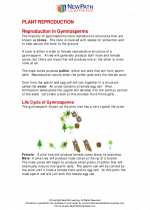 Plant reproduction
Plant reproduction  Activity Lesson
Activity Lesson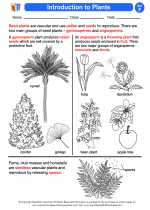 Introduction to Plants
Introduction to Plants  Worksheet/Answer key
Worksheet/Answer key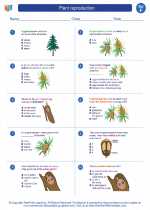 Plant reproduction
Plant reproduction  Worksheet/Answer key
Worksheet/Answer key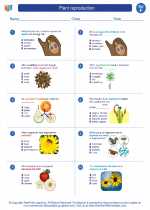 Plant reproduction
Plant reproduction  Worksheet/Answer key
Worksheet/Answer key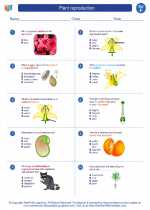 Plant reproduction
Plant reproduction  Vocabulary/Answer key
Vocabulary/Answer key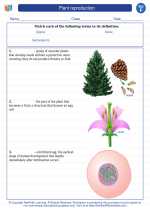 Plant reproduction
Plant reproduction 

 Activity Lesson
Activity Lesson
 Worksheet/Answer key
Worksheet/Answer key
 Worksheet/Answer key
Worksheet/Answer key
 Worksheet/Answer key
Worksheet/Answer key
 Vocabulary/Answer key
Vocabulary/Answer key

The resources above cover the following skills:
LIFE SCIENCE
From Molecules to Organisms: Structures and Processes
Students who demonstrate understanding can:
Use argument based on empirical evidence and scientific reasoning to support an explanation for how characteristic animal behaviors and specialized plant structures affect the probability of successful reproduction of animals and plants respectively.